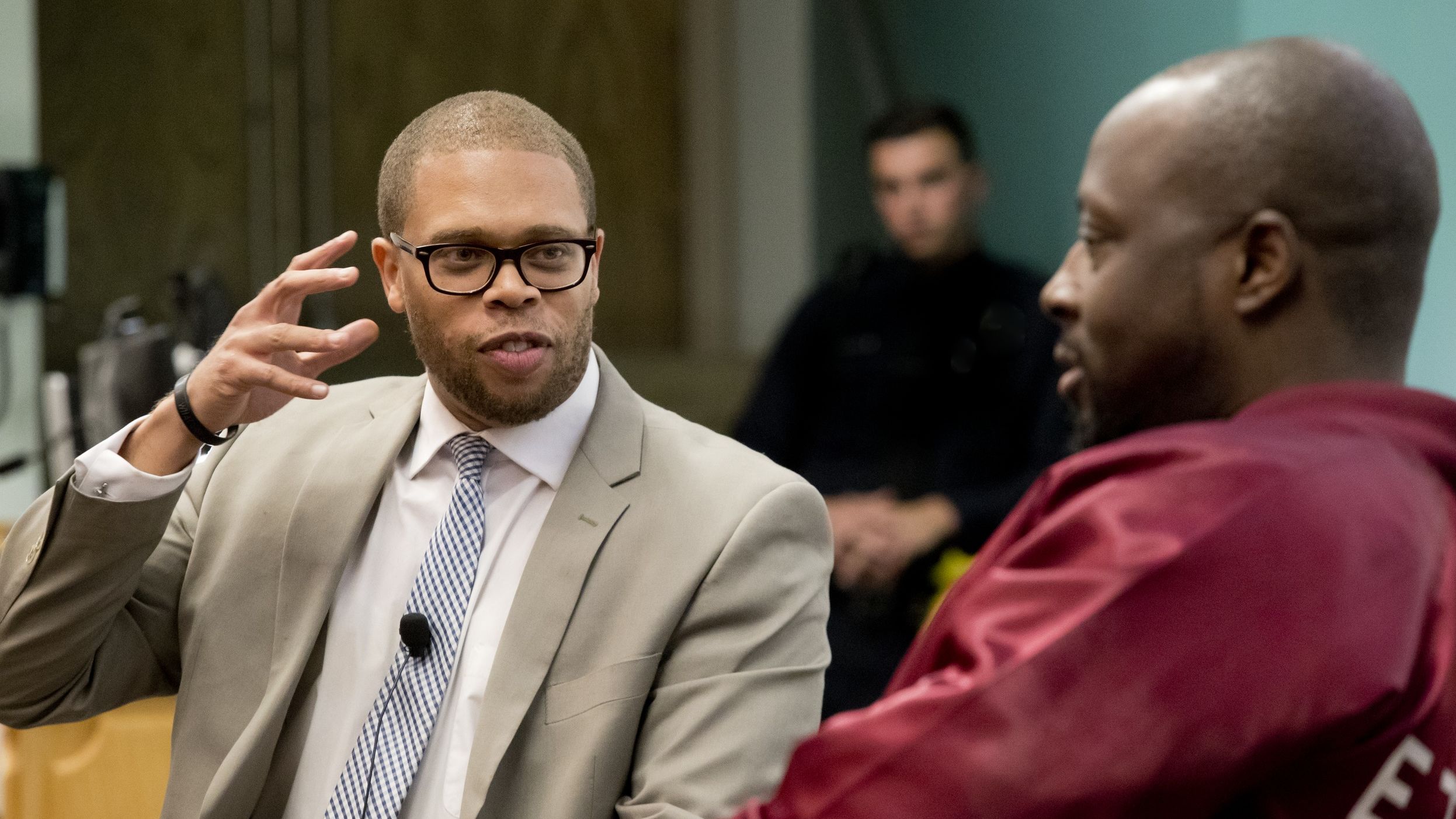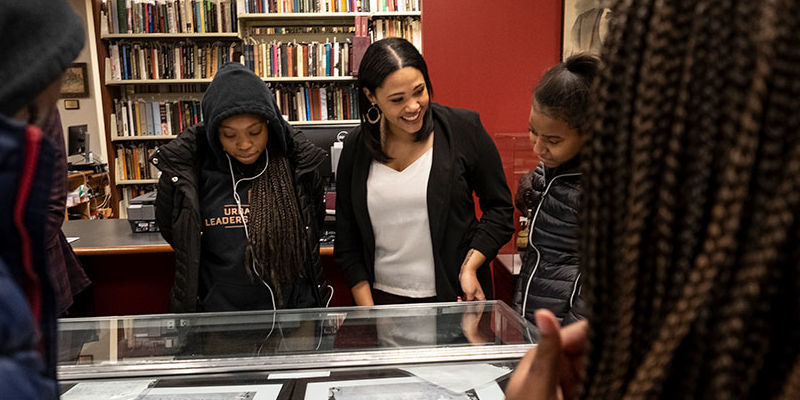What to read, watch and see for Black History Month
Timothy Welbeck, a member of Temple’s Africology and African American Studies department, recommends 10 essential chronicles of the African American experience.

In celebration of Black History Month, civil rights attorney Timothy Welbeck—who teaches African American history and culture at Temple—writes about 10 books, movies and TV shows he feels are great starting points for explorations of black history.
Black history is American history. The first slave ship’s arrival in 1619 means as much to the founding of our nation as the declaration of independence in 1776. And the end of the civil war in 1865 is just as important as the first session of the U.S. Congress in 1789.
Yet this vibrant history is often left out of conventional retellings of the American story.
Here are 10 novels, nonfiction books, movies and TV shows which capture facets of the African American experience.
- The Bluest Eye
A Nobel laureate and Pulitzer Prize winner, the late Toni Morrison is widely considered to be one of our nation’s greatest writers. Her work strikes the rare balance between critical acclaim and commercial success, and captures the depth of black life with warmth and power. Published in 1970, The Bluest Eye was her first novel and follows the painful childhood of Pecola Breedlove, a black girl who dreams of having blue eyes. The novel is a keen example of Morrison’s glorious, towering prose.
- The Warmth of Other Suns: The Epic Story of America’s Great Migration
This expansive study into the Great Migration and Second Migration is an epic saga written with care and nuance. Deriving its name from a Richard Wright poem, Isabel Wilkerson’s 2010 book melds historical context, statistical analysis and the personal narratives of three subjects. What emerges is a story of the remaking of American geography, propelled by black people seeking to escape the harrowing realities of the rural South.
- The Color Purple
An adaptation of Alice Walker’s beloved 1982 epistolary novel (winner of the 1983 Pulitzer Prize for Fiction and National Book Award for Fiction), The Color Purple chronicles the life of Celie, a black woman in the rural South who endures unspeakable abuse and racism. Directed by Steven Spielberg, the film features an all-star cast (Oprah Winfrey, Whoopi Goldberg, Danny Glover, Laurence Fishburne, Margaret Avery, et al.) offering iconic performances.
- The Autobiography of Malcolm X
Originally published in 1964, The Autobiography of Malcolm X depicts the remarkable life of El-Hajj Malik El-Shabazz (formerly known as Malcolm X). He had the rare ability to speak truth to power with unflinching courage and piercing insight. Many have come to know the reality of the black experience through the lens of this classic autobiography. His activism relentlessly challenged the white supremacist paradigms that undergirded racial segregation while also decrying the perilous conditions that segregation produced for black people in America, and communicated the struggle of oppressed people across the diaspora.
- Eyes on the Prize
This groundbreaking, fourteen-part documentary series, aired between 1987 and 1990, captures the quest for civil rights and liberty from 1957 to 1968. As Nikole Hannah-Jones, investigative reporter for The New York Times Magazine, remarked, “America wasn’t a democracy, until black Americans made it one.” The Peabody Award-winning series illustrates that truth in painful detail as it showcases movements to eradicate Jim Crow, secure voting rights and fortify other liberties promised to Americans.
- In the Matter of Color: Race and the American Legal Process: The Colonial Period
The legalization of racial stratification in the U.S. dates back to the arrival of the first slave ship in Jamestown, Virginia, on August 20, 1619. The late Judge A. Leon Higginbotham, Jr.’s In the Matter of Color chronicles this process with painstaking detail and searing clarity. It sets a clear foundation for understanding the role race has played in the codification of American law. Michelle Alexander’s The New Jim Crow and Stamped from the Beginning by Ibram X. Kendi, CLA ’07, ’10, continue this tradition.
- Roots
This Emmy Award-winning television miniseries, first broadcast in 1977, is an adaptation of Alex Haley’s iconic family narrative, told in the novel of the same name. Beginning with a recounting of the life of Kunta Kinte, Haley’s ancestor captured in The Gambia as an adolescent and subsequently sold into slavery, the series chronicles the compelling story of Haley’s ancestors, and in so doing illustrates key portions of U.S. history.
- Killing the Black Body: Race, Reproduction, and the Meaning of Liberty
With her groundbreaking 1997 work, Killing the Black Body, legal scholar Dorothy Roberts exposes the crushing ways America systematically exploits and abuses black women’s bodies—from the economic interests of slave masters in the fertility of their enslaved women, to forced sterilization of poor black women in the late 1970s, to the degradation of black motherhood more recently. This book shifted the public discourse on race and reproductive health.
- 13th
Ava DuVernay’s 2016 documentary assembles an all-star cast of scholars, activists and lawmakers (Michelle Alexander, Bryan Stevenson, Angela Davis, Jelani Cobb, Khalil Muhammad, Cory Booker, et al.) to explore the epidemic of mass incarceration, while also explaining how the modern prison industrial complex reiterates elements of chattel slavery.
- “The Case for Reparations”
When the Commonwealth of Massachusetts granted Belinda Royall a pension of 15 pounds and 12 shillings in 1783, it became one of the first known allocations of reparations in U.S. history. While her experience is rare, the debate revolving around reparations has festered for more than two centuries. In “The Case for Reparations,” Ta-Nehisi Coates makes a compelling argument for reparations that centers on housing segregation, along with the theft and plunder of black land. The essay, published by The Atlantic in 2015, reinvigorated debate and helped influence the congressional Commission to Study and Develop Reparation Proposals for African Americans.
-Timothy Welbeck

